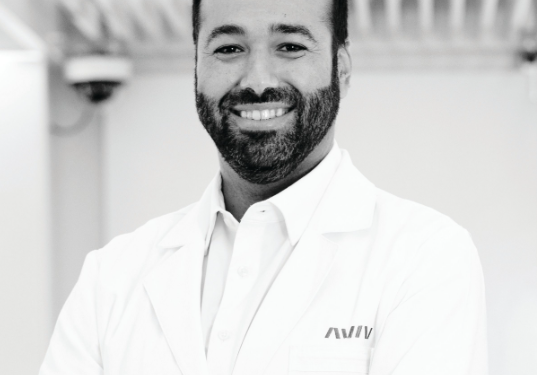By Ian Hebeisen
As the son of a neurologist, Dr. Mohammed Elamir learned about the brain at a young age. One of his earliest memories involves a visit to his father’s office. “My father actually had the privilege and opportunity to treat Muhammad Ali, the boxer,” said Dr. Elamir. “I was five years old, and Muhammad Ali came to my dad’s office… I remember meeting him and talking to my dad about what it was like treating him. As Dr. Elamir grew up, he interned at the office from middle school into college. Now, Dr. Elamir boasts over 10 years of experience in internal medicine.
After retiring, Dr. Elamir’s father suffered from a stroke, affecting his speech. Dr. Elamir shifted the focus of his research towards finding ways to heal the brain. His research led him to a paper published out of Israel, where Dr. Shai Efrati utilized hyperbaric oxygen to heal the brain. “He used hyperbaric oxygen in a very specific protocol to change the physiology within the brain,” said Dr. Elamir.
While looking for jobs, he kept his eye open for something similar to the process detailed in the paper. With a bit of luck, Aviv Clinic in Central Florida reached out – a facility run by Dr. Shai Efrati using hyperbaric oxygen to treat patients suffering from brain injuries. “I said, ‘great, I’m applying for the job’,” said Dr. Elamir. “I just wanted to talk to him about the protocol and see if it could help my dad. But once I spoke with him, we spoke for hours and he told me everything about the research.”
“Once I saw the clinic and what was possible, it was easy enough to leave my practice and join the team,” said Dr. Elamir. Now, working at Aviv Clinic, he helps patients with all sorts of brain injuries, implementing hyperbaric oxygen when appropriate.
Originally used to help scuba divers with medical emergencies such as the “bends”, hyperbaric oxygen involves breathing 100% oxygen in a pressurized environment. This increases oxygen concentration, getting it directly into deprived cells. Certain TBIs can destroy tiny blood vessels in the brain, which causes a decrease in oxygen delivery, resulting in slow cell death and impaired function.
In a low oxygen environment, the body produces a molecule promoting new cell and blood vessel growth. “We administer the protocol where you’re breathing 100% oxygen in a pressurized environment for 20 minutes, then we take the mask off for five minutes,” said Dr. Elamir. “That tricks the body, making it think it’s in a low oxygen state every time you take the mask off, triggering that molecule to be released.”
“Now, we can make new stem cells,” said Dr. Elamir. “If we want to regenerate brain tissue or nerve cells, we can. We can grow new blood vessels. Not only can you heal the brain, you can prevent future decline because you’re building resources with this protocol. And that’s what we do here at the Aviv Clinics.”
Hyperbaric oxygen will not be for everyone. “If you’ve had seizures or epilepsy, we need you to be six months free of seizures, and cleared by your neurologist,” said Dr. Elamir. “If you’re pregnant, you can’t go in the chamber. If you’ve had collapsing of the lungs, being put in a high pressure chamber can collapse the lung again. And if you have an active cancer, the last thing I want to do is grow new blood vessels into that active cancer.”
Since no two brains function the same way, every patient begins with a full assessment. From there, the treatment becomes straightforward – initiating protocol for several weeks with assessments throughout. Aviv Clinics often administers brain games on an electronic tablet during the procedure to further stimulate the mind and promote recovery.
“My favorite appointment is that final summary meeting,” said Dr. Elamir. “I review the scans, show the brain before and after… I often connect day-to-day things they’ve noticed with the parts of the objective testing.”
To learn more about Aviv Clinics or to schedule a consultation, visit www.aviv-clinics.com. To listen to the whole conversation, listen to the Faces of TBI podcast on Apple Podcasts or wherever you find your podcasts.
Ian Hebeisen is a writer based in the Twin Cities. Graduating in 2020 with a degree in English with a Writing Emphasis, he writes and edits for the Brain Health Magazine. His work can be found in JUVEN Press and the Writer’s Playground. In his free time, he enjoys playing games with his family and friends











